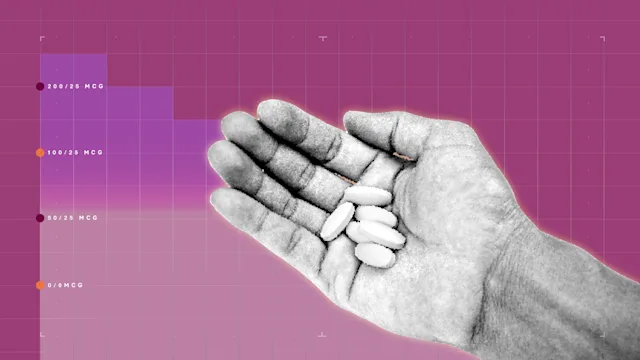Key takeaways:
Coffee is actually really good for you. Drinking 2 to 3 cups of coffee a day can lower your chances of heart disease and increase your longevity.
Caffeinated coffee reduces the chance of developing coronary artery disease, strokes, heart failure, and even abnormal heart rhythms.
A few heart conditions may make someone more sensitive to the effects of caffeine. These people should limit coffee intake to 1 cup a day.
You might be one of those people who can’t start your day until you’ve had a nice, warm cup of coffee. Lucky for you, that morning ritual may be doing more good than just waking you up. Among its other benefits, recent studies suggest that coffee may be particularly good for your heart. So, let’s dive into how and why coffee may be a good part of a heart-healthy diet.
Is coffee good for your heart?
Most people drink coffee for the stimulation from caffeine. But coffee actually has hundreds of other compounds that can be good for your health — and even increase longevity.
It turns out that drinking a moderate amount of coffee, defined as 2 to 3 cups a day, has been shown to reduce the chances of heart disease. Researchers used a large database of over half a million people to understand how drinking coffee is related to other health outcomes. They found that drinking coffee can lower the risk of developing the following health issues:
Coronary artery disease (blockages in the heart’s arteries that can lead to heart attacks)
Arrhythmias (abnormal heart rhythms)
Coffee is also associated with a lower risk of Type 2 diabetes, obesity, and depression. These conditions can contribute to heart disease.
Experts aren’t exactly sure why coffee is so good for you. But it’s likely related to its antioxidant content. The biological compounds in coffee can help reduce inflammation, improve metabolism, and protect the body against stress.
It’s also important to note that coffee is good for your heart no matter if you have underlying heart issues or not. And these benefits hold true regardless of how you prepare your coffee, like ground, drip, or instant coffee.
Is decaf coffee still good for your heart?
Decaffeinated coffee isn’t as beneficial as drinking regular coffee, but it still has some heart benefits.
According to the research, someone who drinks decaf coffee will have a lower risk of developing coronary artery disease than someone who doesn’t drink coffee at all. But decaf coffee doesn’t reduce the chances of developing heart failure or abnormal heart rhythms.
We don’t know if decaf coffee can boost your longevity. More data is needed. But it does seem that regular coffee has more benefits for both your heart and overall health. Just make sure that your body can tolerate caffeine before filling up your mug.
Healthy ways to spruce up your coffee: Too much sugar or creamer can undo some of the health benefits of coffee. Here are some better ways to improve the taste.
Does caffeine raise your blood pressure? Our experts go in depth about the relationship between caffeine intake and blood pressure.
Coffee and medication interactions: Coffee can affect the way you metabolize or respond to certain medications. Learn about the ones that are most common.
Does coffee affect your heart rate, heart rhythm, or blood pressure?
Coffee does increase most people’s heart rate and blood pressure. But it’s unclear if this has any significant impact on your health. And it also depends on how much coffee you drink.
Typically, heart rate and blood pressure only go up a little bit after drinking a cup of coffee. This effect is minimal in people who drink coffee on a regular basis. In fact, several studies have shown that coffee drinkers have less issues with their heart rate or arrhythmias than non-coffee drinkers.
Even in people with underlying arrhythmias, drinking 1 cup of coffee a day leads to a lower chance of dying from any cause.
Read more like this
Explore these related articles, suggested for readers like you.
But it’s important not to drink too much. One study looked at people who regularly drink more than 400 mg to 600 mg of caffeine a day. That’s equal to 4 to 6 cups of coffee. Over time, these high-caffeine consumers had a higher chance of an increased heart rate and blood pressure. This is more likely to be true if you’ve been drinking a high amount of caffeine most days out of the week, for over a year.
Keep in mind that some people are more likely to feel their heart beating fast after drinking coffee. Some of this is genetic, in addition to how your body responds to coffee or caffeine.
Is it safe to drink coffee every day?
For most people, it’s safe to drink coffee every day. But there are risks of drinking too much coffee. Some risks of drinking coffee include:
Anxiety
Heart palpitations
Tremors, or feeling shaky
Insomnia, or trouble sleeping
Loss of bone density
If you feel like you’re experiencing side effects of coffee, or you’re sensitive to the effects of caffeine, start by cutting back on your caffeine consumption to see if it helps. And if you’re still concerned, talk to your primary care provider about your symptoms.
How much coffee is OK to drink every day?
For most people, drinking 2 to 3 cups of coffee is safe. But more than this can increase the chances of side effects, including some heart issues. The increase in heart rate and blood pressure with extra caffeine can tip some people over the edge.
You should limit your caffeinated coffee intake to 1 cup a day if you have:
Underlying heart arrhythmias
Very high blood pressure (greater than 160/100 mmHg)
Additionally, women who are pregnant or lactating should also limit their coffee intake to 1 cup a day.
Is tea also good for your heart?
Drinking tea can be good for your heart too. Tea can decrease your “bad” cholesterol, LDL (low-density lipoprotein). And it can help increase your “good” cholesterol, HDL (high-density lipoprotein).
Green tea has some of the most antioxidants, and it can lower the chances of developing cardiovascular disease. Green tea can even lower blood pressure.
The bottom line
Having 2 to 3 cups of coffee a day can be beneficial for your heart. Coffee can reduce the chances of developing heart disease, like coronary artery disease, heart failure, and arrhythmia.
Coffee may temporarily increase your blood pressure or heart rate. But usually the effects are mild. And they don’t have negative consequences on your overall health. People who are particularly sensitive to the effects of caffeine should limit their coffee to just 1 cup a day.

Why trust our experts?


References
American College of Cardiology. (2022). Good news for coffee lovers: Daily coffee may benefit the heart.
American College of Cardiology. (2024). New study finds chronic high caffeine consumption may heighten risk for cardiovascular disease.
American Heart Association. (2022). Drinking 2 or more cups of coffee daily may double risk of heart death in people with severe hypertension.
American Heart Association. (2023). Caffeine and heart disease.
Babu, P. V., et al. (2008). Green tea catechins and cardiovascular health: An update. Current Medicinal Chemistry.
Kim, E., et al. (2021). Coffee consumption and incident tachyarrhythmias: Reported behavior, Mendelian randomization, and their interactions. JAMA Internal Medicine.
O’Keefe, J. H., et al. (2013). Effects of habitual coffee consumption on cardiometabolic disease, cardiovascular health, and all-cause mortality. Journal of the American College of Cardiology.
Pry, W. (2020). Teatime can be good for your health. American Heart Association.


















